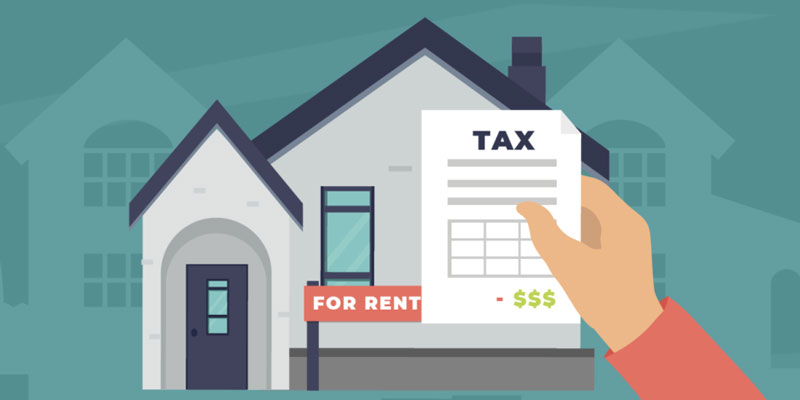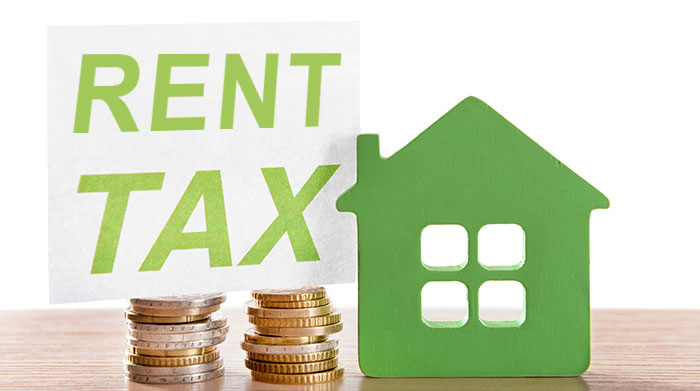Deductions for Rental Property Taxes
Susan Kelly
Mar 07, 2022
Land lording has the potential to increase your savings substantially, but it also comes with considerable responsibility. Additionally, it would help find tenants, secure insurance, and pay mortgage and property taxes on top of your living expenses.
As a renter, you may also have to deal with additional tax issues. Some costs of managing a rental property are fortunately deductible by Uncle Sam. Deductible expenses must be common and acceptable in the rental industry and necessary for managing and maintaining the property, according to IRS guidelines.
Working with a tax and financial professional can help you better manage your real estate investments.

Mortgage Interest Tax Deductions
Most homeowners use mortgages to buy their own homes, which is true for landlords. Loan interest is the biggest deductible item for landlords with mortgages. As a reminder, you cannot deduct the portion of your monthly payment that goes toward the principal balance of your mortgage.
Instead, only payments made to cover interest charges are eligible for the deduction. Your monthly statement will list each of these components separately, making it simple to keep track of them. To calculate your annual interest, divide your monthly payment by 12.
Interest on unsecured loans used to make upgrades to your property, as well as credit card interest for expenditures related to your property, can all be deducted. It's best to seek the assistance of an accountant or financial counselor to help you figure out what's deductible and what doesn't.
Property Tax Deduction

Property taxes are collected by almost every state and local government. Depending on where your rental property is located, they can be as low as a few hundred dollars or as much as several hundred thousand dollars.
By examining your escrow summary or contacting a tax consultant, you can determine your local tax rate. Additionally, if your state has the landlord or vacation rental license costs, you may be able to deduct these.
Your state and local income taxes, as well as your property or sales taxes, can only be deducted up to $10,000 (or $5,000 for married taxpayers filing separate forms) by the Internal Revenue Service. As a result, any additional state or local taxes paid are not deductible.
Insurance Premium Deduction
Lenders have the authority to require that borrowers obtain insurance before securing a loan. Since rental property insurance is considered a normal and essential expense, it can be deducted.
As well as standard homeowners insurance, the discount is also applicable to additional coverage’s such as special perils and liability insurance. Workers' compensation and health insurance premiums can also be deducted if you have employees.
Insurance prices for rental properties are often higher, but this increase can help to mitigate that. Losses incurred by landlords, such as those incurred in the event of storms or earthquakes, can also be deducted.
Tax Breaks for Rental Properties
You must establish appropriate recordkeeping practices and remain up to changes to local rental property deduction procedures if you own rental property in that location. It's possible to deduct expenses related to your rental property from your taxable income, and these deductions can vary from year to year.
1. Closing expenses
New rental properties' acquisition costs may be eligible for tax deductions. As acquisitions costs, they may be deductible if your CPA says they are not.
2. Wages of employees
On their income tax returns, taxpayers can deduct wages paid to employees, independent contractors, and other professional services working for the rental property, from property managers and repair workers to CPAs. Also deductible are the costs incurred by the management firm.
3. In-House Business Operations
Allowing you to deduct the costs of setting up and operating your home office is permitted by tax regulations. However, to claim the deduction, you must own the rental business.
The deduction can only be claimed if the taxpayer is self-employed. Internet service, office furniture and equipment, and PCs are part of this home office budget.
4. Insurance
Your property's insurance premiums may be deducted from your taxable income. This includes liability insurance, mortgage insurance, and rent default insurance (which covers tenants defaulting on rent).
5. Maintenance
Repairs, landscaping, pest control, and trash disposal are all considered part of the property's maintenance and can be written off. Adding new cabinetry, appliances, or flooring are examples of "capital improvements," which increase the value of a property and reduce depreciation costs.
6. Interest Rates on Home Loans
A portion of your rental property's mortgage interest is deducted from your taxable income. Rental property owners are not limited in the number of interest deductions they can claim, unlike homeowners who own a primary residence.
7. Depreciation of real estate
The IRS enables rental property owners to claim a minor depreciation deduction on their tax returns each year since the value of a structure decreases with time. Your property's initial fair market value is a component of this percentage.
You can subtract one-twenty seventeenth and a half of the property's worth each year for a total annual deduction of 3.64 percent throughout twenty-seven and a half years.







